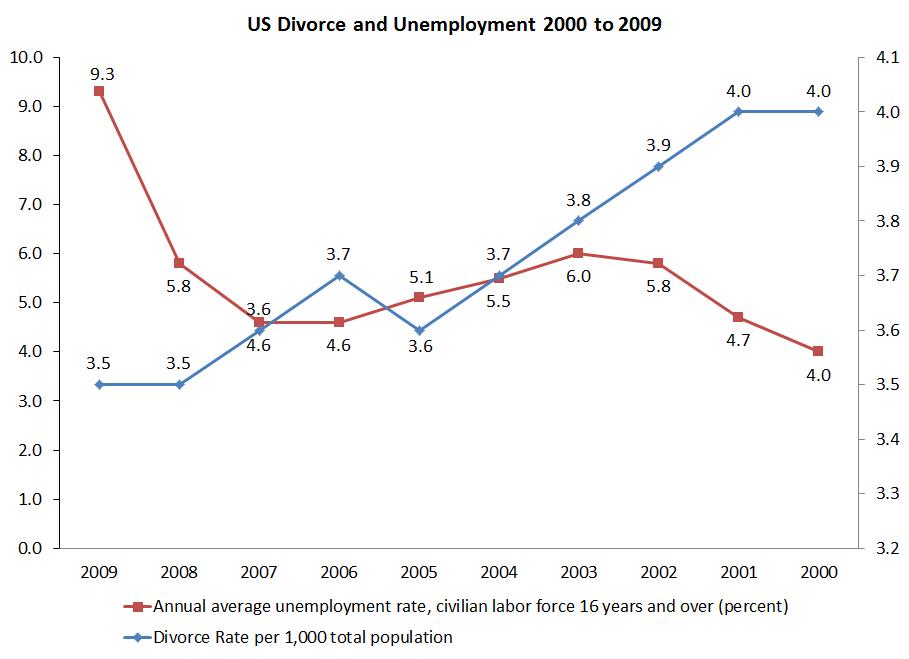The Coming Divorce Boom
During a recession, consumers typically build up their savings and hold off on purchases due to uncertainty about the economy. Following a recession, we often see a burst of economic activity thanks to an increase in consumer confidence and spending.
Pent-up demand can cover everything from auto sales to home purchases to travel. It can also lead to a surge of activity in areas outside of consumer products or services.
One such area is divorce.
As you can see from this chart, divorce rates typically fall as unemployment rates rise.
 US Unemployment and Divorce Rates 2000 to 2009
US Unemployment and Divorce Rates 2000 to 2009
As we begin to see improvement in the economy, we will probably see increased rates of divorce as consumers become more confident in the stability of their incomes, the outlook for the economy, and their ability to form a separate household.
The relationship between labor force participation and divorce has been studied by economists for many years. The prevailing wisdom among most economists (explained in more detail in this 2004 AEJ paper) theorizes that female labor force participation increases income, financial independence, and consequently, the probability of divorce. Financial independence is generally regarded as the strongest of these factors.
As we see continued improvement in the economy over the next couple of years, we should see a pickup in home sales, rentals and probably household formations as current single households become two households.
This has implications for many industries outside of divorce attorneys. We should see an uptick in home sales, cosmetic surgery as newly singled couples prepare for finding new mates, and stronger traffic for dating websites. This also impacts fashions and apparel styles since singles and divorcees tend to be more fashion conscious than married couples with children. Apparel sales should benefit from the coming boom as well.
This also has implications on voting and elections.
Ending a marriage is a stressful process that frequently disrupts familiar routines, including voting. Married adults are more likely to vote than those who have never been married; in turn, previously married people are the lightest voters.
Because voting requires two considered routine actions (registration and turnout), divorce negatively impacts voting. Married partners have help with household tasks and also most of the chores associated with voting: not only registration, but also locating polling places or obtaining absentee ballots.
After the 2012 elections where turnout should be relatively strong for a myriad of reasons, we should start to see decreasing levels of voter turnout over the following few cycles as the economy continues to recover from the great recession, and unfortunately, due to an increasing number of dissolving households.
